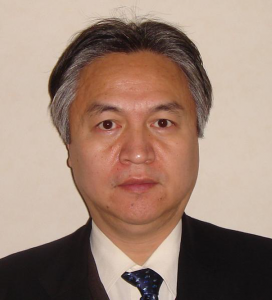Speaker :Prof. Yen-Wei Chen, College of Information Science and Engineering,Ritsumeikan University, Japan
Time:5 March 2019, 13:30 p.m.
Venue:Conference Room 530, 5th Floor, Science Building, Fudan University
Summary
Atlas of human anatomy is an important teaching tool in the medical community. In the recent years, digital atlases of human anatomy have become popular and hot topics in medical image analysis research field. The basic idea of the digital atlas is to capture the organ variability of its position, shape and voxel intensity (texture) from a training set (either different individuals (inter-patient variability) or the same individual (intra-patient variability)). On the other hand, artificial intelligence (AI) plays important roles in many academic and industrial areas. We constructed computational abdominal models and developed advanced computer-aided detection/diagnosis (CAD) and surgery support systems by combining the models with AI. AI and computational anatomic models can significantly improve the accuracy and efficiency of diagnosis and treatments. In this keynote, I will talk about how AI is used for constructions of computational anatomic models and current progress and futures of computational anatomy and AI in medical imaging.
Biography

Yen-Wei Chen received the B.E. degree in 1985 from Kobe Univ., Kobe, Japan, the M.E. degree in 1987, and the D.E. degree in 1990, both from Osaka Univ., Osaka, Japan. He was a research fellow with the Institute for Laser Technology, Osaka, from 1991 to 1994. From Oct. 1994 to Mar. 2004, he was an associate Professor and a professor with the Department of Electrical and Electronic Engineering, Univ. of the Ryukyus, Okinawa, Japan. He is currently a professor with the college of Information Science and Engineering, director with the research center of advanced ICT for medicine and healthcare, Ritsumeikan University, Japan. He is also an adjunct professor with the College of Computer Science, Zhejiang University, China. He was a visiting professor with the Oxford University, Oxford, UK in 2003 and a visiting professor with Pennsylvania State University, USA in 2010.
His research interests include medical image analysis, computer vision and computational intelligence. He has published more than 300 research papers in a number of leading journals and leading conferences including IEEE Trans. Image Processing, IEEE Trans. SMC, Pattern Recognition. He has received many distinguished awards including ICPR2012 Best Scientific Paper Award, 2014 JAMIT Best Paper Award, Outstanding Chinese Oversea Scholar Fund of Chinese Academy of Science. He is/was a leader of numerous national and industrial research projects.